Written in the Land Reflections and exhibition
During the last months of 2021, the Landscape Decisions Programme worked with established authors Emily Diamand and Patrick Laurie to offer a writing tuition course for farmers and land workers across Britain. Written in the Land offered eight applicants from across the UK support through a range of subjects designed to improve their skill as writers. The workshops were first devised as part of the Tipping Points project and Pen and Plough collaboration by Dr Pippa Marland at the University of Bristol.
Written in the Land was designed to complement the Landscape Decisions programme, placing a focus on the decisions made every day by those who live and work in rural places. Representations of the British countryside are often strangely contradictory. Rural landscapes can become an ideological battleground for issues of policy, media and culture, but despite their inherent familiarity, they are also frequently portrayed as belonging to a different world, with opaque systems of conventions and rules.
This sense of difference, the amorphous “non-urban” that surrounds the bulk of our population, has been heightened by a surge in popularity of writing which looks in at the countryside from the position of a visitor. It’s no coincidence that this kind of “nature writing” overlaps with travel writing, and while these writers respond to an important need for a predominantly urban UK majority, they also risk alienating voices which originate in rural landscapes. Of course, we don’t want to tear down the voices of nature writers, but balanced discussion requires counterargument and for that we need to amplify those voices which are so often spoken for, without speaking themselves.
In our deeply historied island, landscapes are artefacts created by the long partnership of human activity and natural processes, and rural livelihoods exist within structures and systems that may be many centuries old. Despite this, the decisions we take every day in the countryside do not always feel like a conscious or strategic movement. Decisions take a variety of forms, and some may be just a small part of plans determined decades, or even lifetimes, beforehand. Working through a daily list of small chores or tasks, an over-arching decision might seem vastly abstract; there isn’t always time to zoom out and consider the strategic meaning of an action when sheep are off to market in the morning and there’s paperwork to do.
The literal experience of landscape decision-making is frequently balanced against more immediate concerns, while also having complex roots in history, tradition, family and connection to place. Such decisions cannot always be expressed in the formal language of policy and evidence, or even cause and effect, instead they shift into the worlds of feeling, of rightness, of what needs to be done. They are no less valid for that, and Written in the Land is our contribution to developing the skills required to articulate the rationales that underpin them.
The pieces in this exhibition explore the varifocal experience of living and working in landscapes, of big issues and small decisions. Andy Roberts examines the root of his decision to step from suburban living into a life embedded in the countryside. Carey Coombs’ extract gives a snapshot of what it is to be an older farmer who has handed decision-making to a younger generation. Emma Hillier lays out the tension and strain of official decision-making when it might mean the destruction of your livestock. Jamie Forman takes us back to his childhood and the reality of a farming life, as opposed to the urban perception. Tom Dutson talks us through his landscape, reminding us how much we share the landscape with other forms of life making their own decisions. Kevin Ford vividly describes the exhausting and exhilarating decision after decision that is required at lambing time. Harry McKerchar brings us his lifetime of veterinary experience and humour, showing us that events can also be determined by chance.
”We are delighted by the writing created by the people who participated in the Written in the Land course. Their work shows a breadth of engagement and experience which runs far beyond the geographic spread of the voices involved; a spread which stretches almost five hundred miles from Lanarkshire to Devon. It has been a pleasure to see these voices develop, and it’s exciting to see where they go next as a group of writers. As abstract policy ideas squirm across the political landscape, we hope that a key outcome from this project is the recognition that those living in our countryside rarely face simple decisions. When it comes to the choices we make in farming and land management, one reassuringly common thread in this exhibition is the blend of warmth, care and humanity.
Emily Diamand & Patrick Laurie
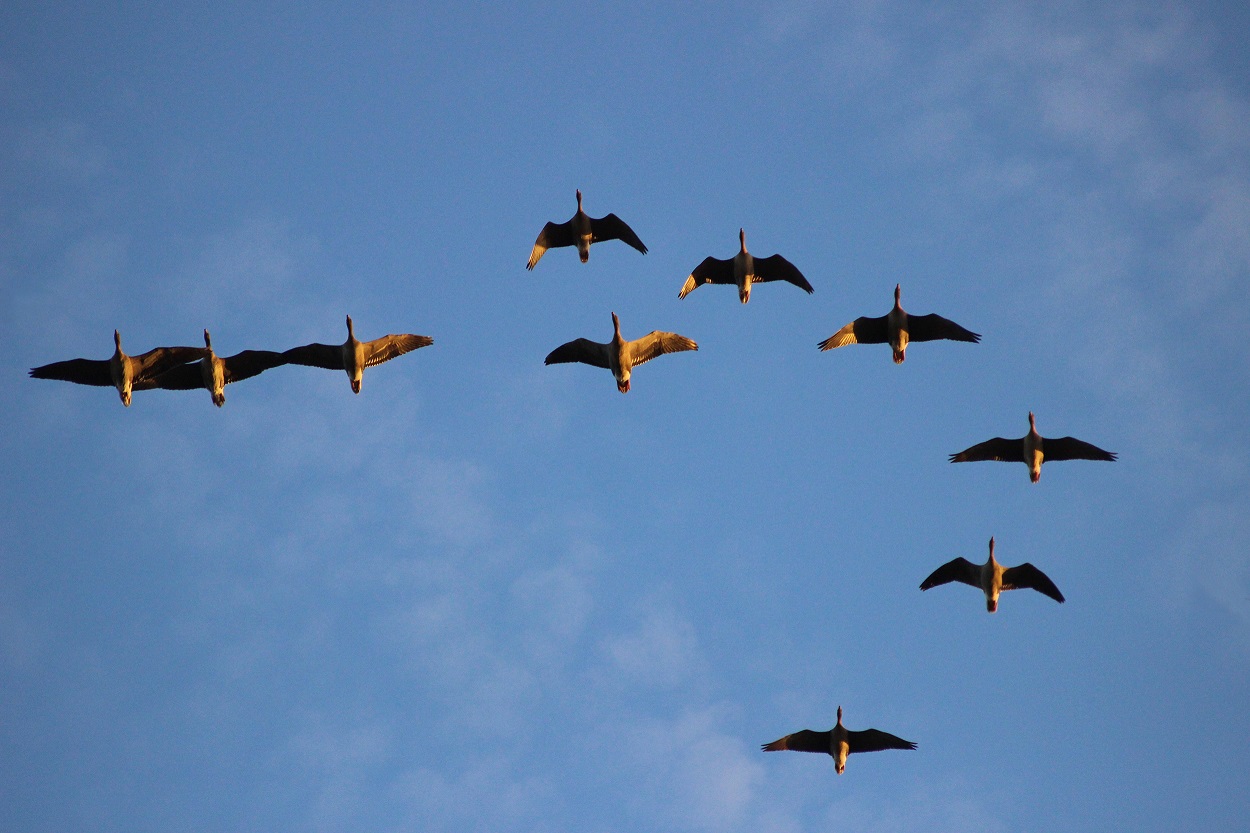
Pink Footed Geese in flight by Andy Roberts
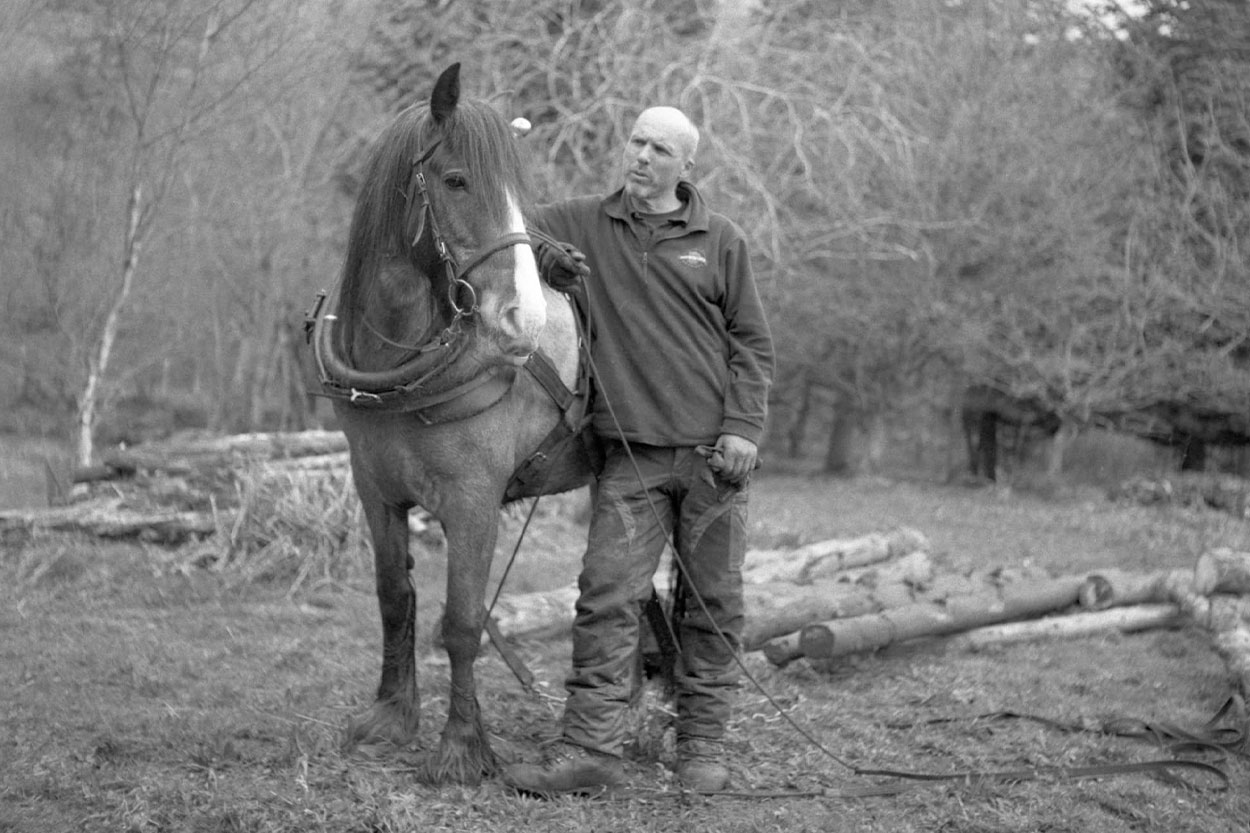
The Logger by Tom Duston
The stars of the show
Emma Hillier runs a small livestock farm in Devon with her husband. Formerly an English teacher, her farming focus is on Devon ruby cattle and British Lop pigs. Read ‘It’s Monday Morning’
Jamie Forman is farmers’ son who has crossed over to land management. Brought up on a tenanted dairy farm in South Leicestershire, he now manages a large, publicly-owned estate in the East Midlands and lives surrounded by the countryside his family has farmed since the 1600s. As a result of Written in the Land he has started his own blog: Jamiewritestoo.wordpress.com Read ‘Winter Chores’
Andy Roberts is a countryman and field sports enthusiast with an interest in nature friendly farming. He lives in the urban fringes of South Yorkshire but has an affinity with southern Scotland. He is most content when exploring the fields, woods, estuaries, rivers and lakes with a dog at his side for company. Andy is vice-chair of the Wild Carp Trust conservation charity. Read ‘A thousand acres of sky’
Tom Dutson and his family have a small farm in the Lake District where they combine a forestry and sawmilling business with keeping rare breed cattle, sheep and goats. Tom enjoys working his native Dales ponies in the woods and on the farm. Listen to ‘Sunday morning meadow ramblings’
Harry McKerchar worked for forty years as a country vet in the Scottish Borders, treating all types of livestock, horses and pets. He has always had a passion for storytelling and now, in retirement, is trying to put his life experiences down for his family. Harry writes a daily post for a local wildlife group about what he sees on his walks, whether birds, beesties, farming, plants or fungi. He hasn’t missed a day since the first Covid lockdown. Read ‘Harry Houdini’
Kevin Ford lives on the edge of Salisbury Plain, near Stonehenge. He has been connected with agriculture all his working life, spending the first 23 years as a stockman, shepherd and livestock manager. Read ‘Lambing’
Carey Coombs farms close to Dunsyre, which lies at the southern end of the Pentland Hills. He breeds Beef Shorthorn cattle alongside a flock of Lleyn ewes. The farm is also home to a selection of horses, buzzards, roe deer, curlews, foxes, lapwings, skylarks, hares and peacocks. Read ‘Heather Lowpers’
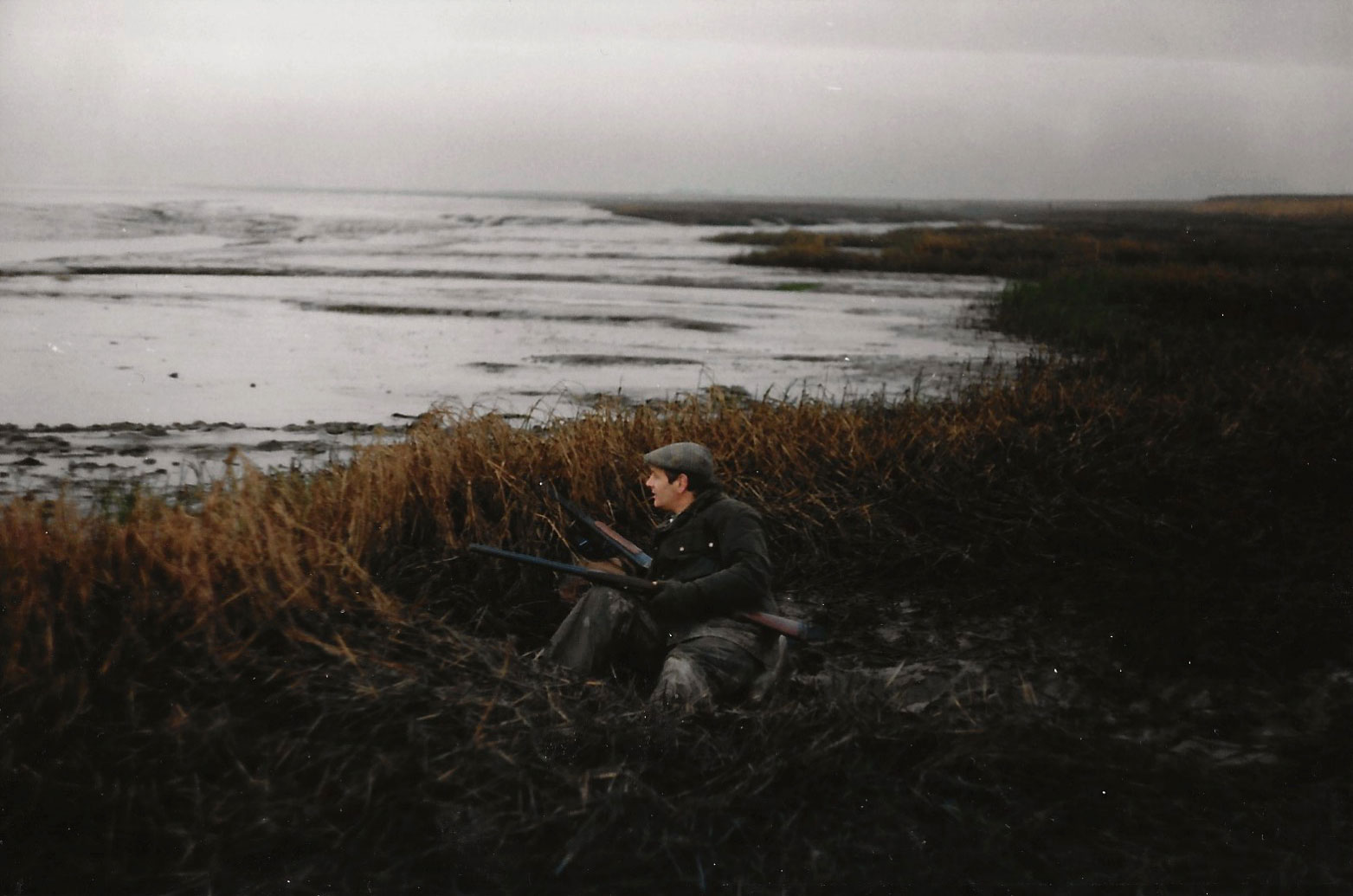
Crabley Creek in February by Andy Roberts
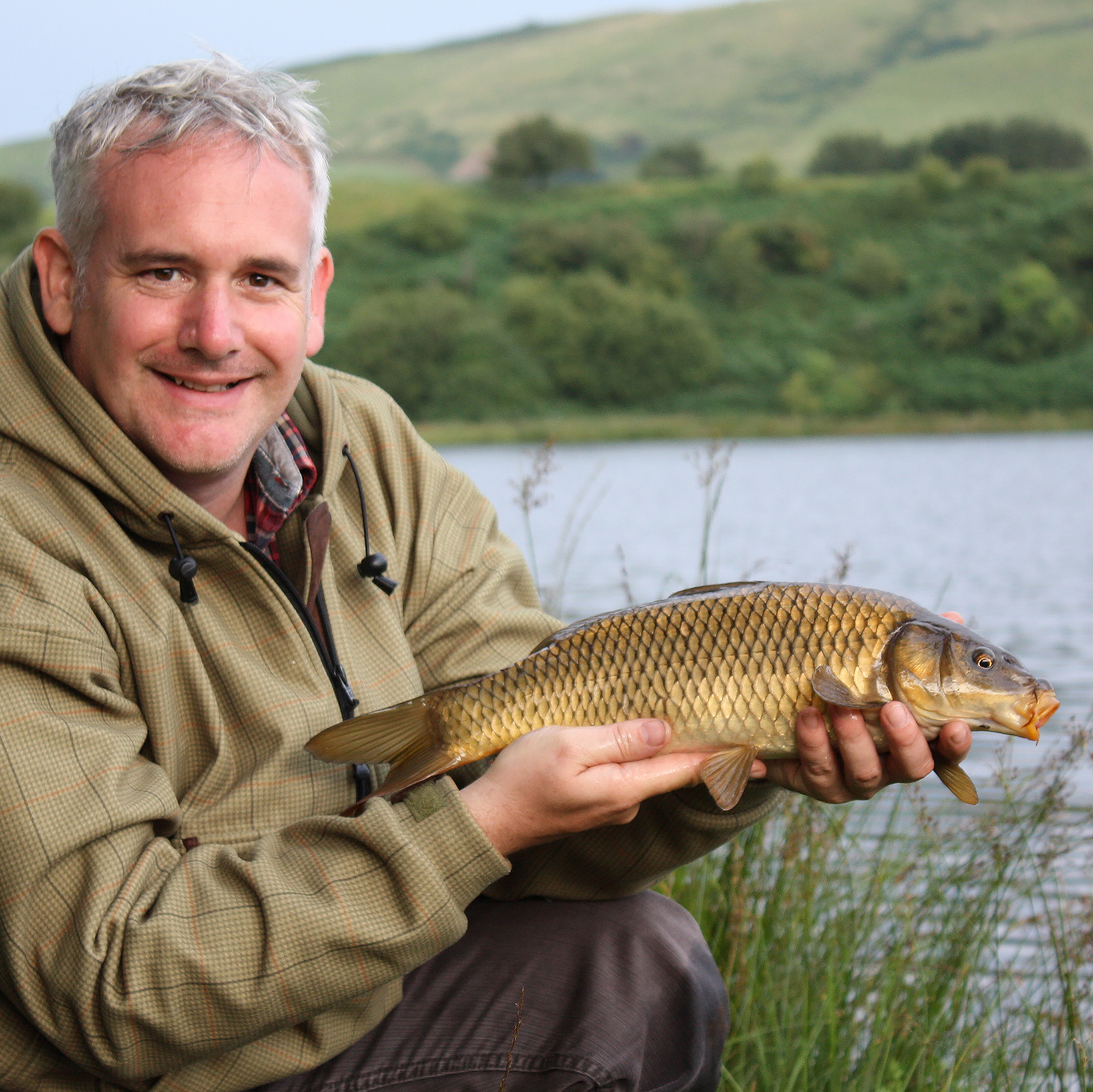
it was ‘this’ big by Andy Roberts
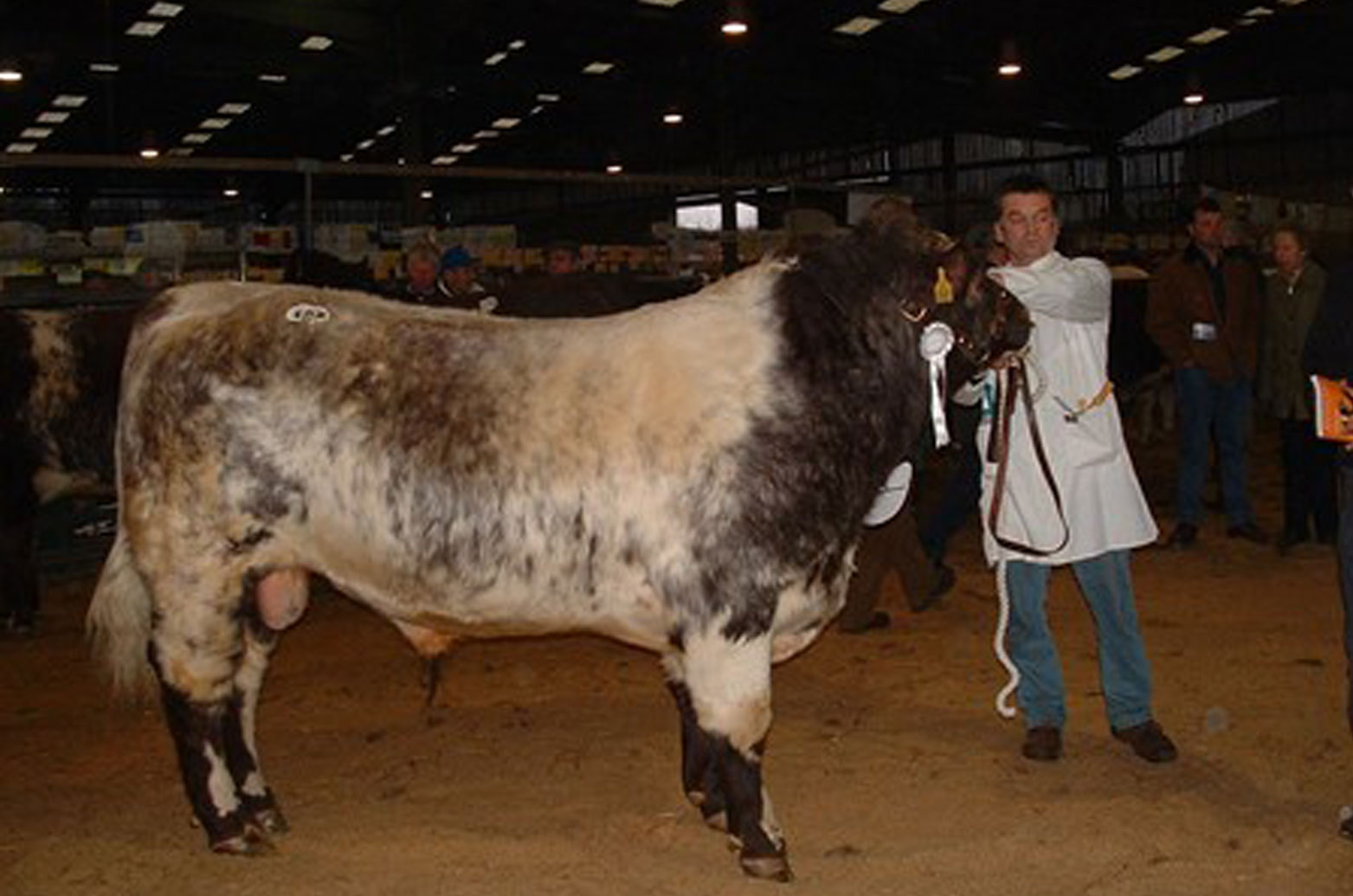
The proud winner by Carey Coombs
The mentors
Emily Diamand is a published author who won The Times prize for children’s fiction in 2008, and has been nominated for the Carnegie prize along with many other accolades. Emily describes herself as ‘a bookish child who always wanted to save the world’, her fantasy adventure stories come with an environmental twist, helped along by her experience of working with environmental organisations and in organic farming. After becoming a published author Emily went on to develop creative writing workshops and is active in promoting reading and writing, especially in her home county of North Yorkshire.
Patrick Laurie is a published author, farmer and freelance journalist with a long-standing interest in the environment. He writes a hugely popular blog Working for Grouse – in addition to writing and farming in the beautiful Scottish countryside, he works for Soil Association Scotland on a program which supports conservation projects on farmland, and contributes to writing courses – we don’t know where he finds the time!
